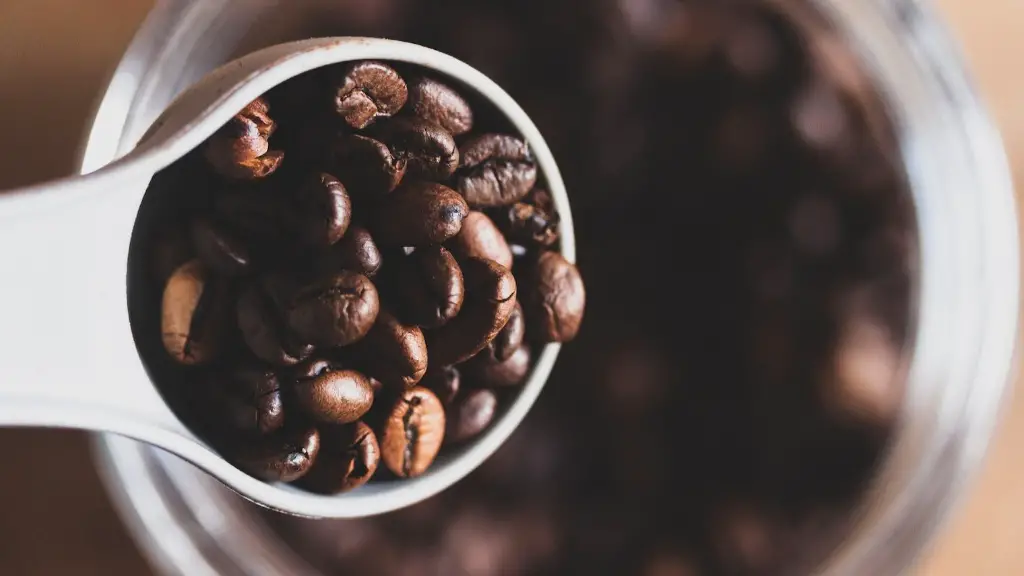Coffee and Covid-19: What to Know
Coffee is a beloved beverage for millions of people around the world. Despite its fans, however, is it safe to enjoy a cup of coffee while coping with the COVID-19 pandemic? In the following sections, we will provide an overview into the impact of and guidelines surrounding coffee consumption during the era of the coronavirus.
The Health Benefits of Coffee
According to the Mayo Clinic, several studies have highlighted the potential health benefits of regular coffee consumption. For instance, researchers have suggested that consumption of the beverage may be associated with a reduced risk of certain chronic diseases, including type 2 diabetes, heart disease and Parkinson’s disease. Additionally, coffee consumption has been correlated with a lower risk of stroke and Alzheimer’s Disease, suggesting that the beverage has both short and long-term health benefits.
Apart from its potential preventive effects, coffee has also been proposed to provide an energy boost and improved mental functions, allowing those under its influence to engage in more complex tasks, such as work or school work, with greater efficiency.
Coffee and Immune System Health
In light of the Covid-19 pandemic, scientists have begun to investigate the potential health benefits of coffee consumption beyond the aforementioned areas.
Studies conducted by researchers from the Harvard T.H. Chan School of Public Health in Massachusetts suggests that regular consumption of the beverage may improve the functioning of the immune system, potentially reducing the risk of infection from a variety of viruses.
These claims, however, remain the topic of ongoing scientific debate, with many experts cautioning that it is too early to draw definitive conclusions.
Coffee Consumption During Covid-19
Given the ongoing debate surrounding the topic, it is not surprising that many people have expressed uncertainty and confusion regarding whether it is safe to drink coffee while recovering from the coronavirus.
According to the U.S. Centers for Disease Control and Prevention (CDC), drinking coffee is unlikely to have any impact on an individual’s risk of contracting the virus. The agency goes on to recommend that regular coffee drinkers should continue to drink coffee while abiding by the guidance of the CDC, such as frequent hand washing, the use of face masks in public places and the maintenance of social distancing in line with the regulations of local authorities .
In light of the potential preventative effects of coffee on the immune system, coffee drinkers may even benefit from increased coffee intake during the pandemic. However, such a course of action must be in line with the other recommendations of the CDC to ensure full safety.
Caffeine Intolerence and Covid-19
It is important to note that, along with following applicable official guidance from the CDC, it is also important for those diagnosed with Covid-19 to consider their caffeine tolerance. In particular, those who may have a relatively low caffeine tolerance may wish to reduce their daily coffee intake to prevent an increase in any associated symptoms, such as nausea and headaches.
Furthermore, given the evidence indicating that increased caffeine intake may result in insomnia and other sleep disorders, it can be important to moderate any coffee drinking pattern, especially for those suffering with Covid-19, to ensure that it does not interfere with the patient’s recovery and well-being.
Impact of Coffee on Covid-19 Vaccines
Although coffee intake is unlikely to prevent an individual from becoming infected with the virus, some studies suggest that regular coffee drinking could influence how well an individual’s body responds to the Covid-19 vaccine.
In particular, the findings of a study conducted at the University of Hong Kong in 2020 suggest that regular coffee drinking could encourage a stronger immune response to the vaccine, resulting in the development of higher levels of antibodies in those who report drinking coffee daily.
The authors of the study, however, note that more research is needed in order to draw definitive conclusions on the matter.
Caffine-Free Coffee Alternatives
Finally, it is important to note that many of the above considerations do not apply to those who consume decaffeinated coffee.
Decaffeinated coffee removes the majority of the caffeine associated with the beverage, meaning that those who drink it are unlikely to experience an energy spike or interference with their recovery. This can make decaffeinated options preferable to their caffeinated counterparts during the pandemic.
Additionally, those seeking a caffeine-free substitute for coffee are likely to benefit from a variety of drinks such as herbal teas and fruit juices, all of which may still provide some of the potential health benefits associated with drinking coffee such as improved mental acuity and a stronger immune system, albeit to a reduced degree.
Further Consideration on Lifestyle Changes
In addition to the potential benefits of drinking coffee and alternative beverages, it is important for those recovering from Covid-19 to consider and make lifestyle changes, especially related to their diet and exercise.
For instance, it can be beneficial to establish a diet plan, providing the body with all the necessary macro and micronutrients, as these will all offer support to the body while it is recovering. Depending on individual circumstances, participating in some form of exercise may also be beneficial, as this could aid in a quicker recovery, as well as providing additional potential health benefits.
Nevertheless, it is important to ensure that any lifestyle or dietary choices are being made with the approval of a medical professional and are in line with the latest official advice from the CDC.
Caffeine Withdrawal Symptoms
Those who do decide to reduce or refrain from their caffeine consumption must also watch out for any potential withdrawal symptoms they may experience, especially if they are accustomed to drinking large amounts of the beverage on a daily basis.
These can include headaches, fatigue, irritability and difficulty concentrating. Of course, these may worsen if an individual has had a particularly high intake of caffeine. It can be somewhat beneficial, therefore, to reduce intake gradually.
Conclusion
In conclusion, when it comes to whether it is safe to drink coffee during the Covid-19 pandemic, the answer depends on the individual in question and may need to be discussed with a medical professional.
For regular, healthy coffee drinkers, the information available does not suggest that coffee drinking should be reduced or avoided entirely for the duration of the pandemic. Nevertheless, such individuals may wish to consider reducing their intake due to potential health benefits and depending on their tolerance level. It is also important to make any such changes in line with the official guidelines of the CDC to minimize any risk.





